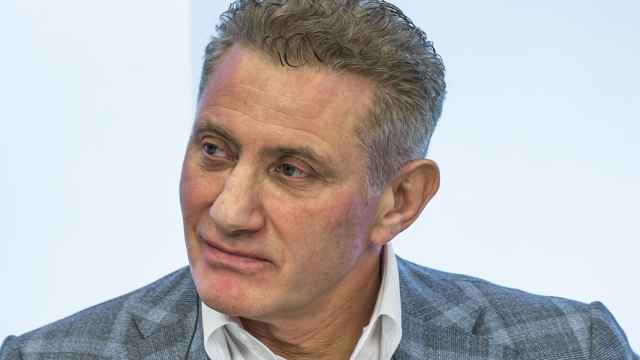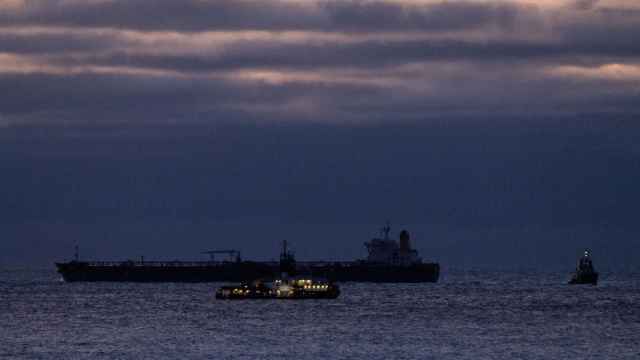KIEV — A donors conference seeking 740 million euros ($1.1 billion) to clean up the Chernobyl disaster site fell well short of its goal Tuesday, but officials remained optimistic that money will be found to make the world's worst nuclear accident site environmentally safe.
Pledges from nations and organizations at the conference totaled about 550 million euros ($785 million), along with 29 million euros ($41 million) from Ukraine.
The money is being sought to complete the construction of a gargantuan long-term shelter to cover the nuclear reactor that exploded April 26, 1986, and to build a facility to store waste from the plant's three other decommissioned reactors.
Japan had been one of the top donors in previous years, contributing 72 million euros in total. But this year, after last month's devastating earthquake, tsunami and ensuing crisis at the Fukushima nuclear power plant, Japan held back from pledging money.
Several other major donors in the past also did not announce pledges Tuesday, citing their own economic difficulties or impending national elections. Among them were Ireland, Spain and Canada.
But "undoubtedly, the countries that were not ready to offer today are still with us," said French Prime Minister Francois Fillon, whose country pledged 47 million euros. France is the strongest defender of using nuclear power in Europe.
Ukrainian President Viktor Yanukovych reached out to countries not at the conference, saying, "We will always be thankful for timely assistance."
Other top pledging countries at the conference included the United States, promising $123 million, Germany with 42.4 million euros and Russia, a latecomer to decades of Chernobyl contributions, pledging 45 million euros. Russia's pledge doubled the amount it has donated since it began contributing in 2005.
The European Commission pledged 110 million euros, and the European Bank for Reconstruction and Development, which is directing the Chernobyl projects, promised 120 million euros.
The international community has already poured 864 million euros into the fund to build the shelter over the reactor. In the months after the blast, workers hastily built a so-called sarcophagus to block off the radiation being spewed from the reactor, but it has already exceeded its proposed service life and has been plagued by structural problems.
The new shelter is to be assembled adjacent to the reactor building and then slid over it on rails. The shelter, designed to last 100 years, is supposed to be in place in 2015, after which the reactor can be disassembled.
The separate spent-fuel storage facility is to hold the waste fuel from the plant's other reactors, which were phased out of service after the blast.
The donors' conference kicked off a week of meetings on the 1986 explosion that spewed a cloud of radiation over much of Europe.
The conference was followed in the afternoon by a "summit" on the safe and innovative use of nuclear energy, at which participants including some heads of state called for improved international cooperation and more rigorous international standards for nuclear power plants.
United Nations Secretary-General Ban Ki-moon told the summit that "the time has come to strengthen the IAEA," the UN's nuclear energy agency, and called for "a top-to-bottom review of nuclear safety standards."
The need for tightened universal standards was underlined by a dispute at the summit between Lithuania and Russia.
Lithuanian Prime Minister Andrus Kubilis complained that plants planned by Russia and Belarus near the Lithuanian border had not had sufficient safety reviews. But Deputy Prime Minister Igor Sechin responded that the plants would be so sophisticated that "something like Fukushima is just not possible."
A Message from The Moscow Times:
Dear readers,
We are facing unprecedented challenges. Russia's Prosecutor General's Office has designated The Moscow Times as an "undesirable" organization, criminalizing our work and putting our staff at risk of prosecution. This follows our earlier unjust labeling as a "foreign agent."
These actions are direct attempts to silence independent journalism in Russia. The authorities claim our work "discredits the decisions of the Russian leadership." We see things differently: we strive to provide accurate, unbiased reporting on Russia.
We, the journalists of The Moscow Times, refuse to be silenced. But to continue our work, we need your help.
Your support, no matter how small, makes a world of difference. If you can, please support us monthly starting from just $2. It's quick to set up, and every contribution makes a significant impact.
By supporting The Moscow Times, you're defending open, independent journalism in the face of repression. Thank you for standing with us.
Remind me later.





